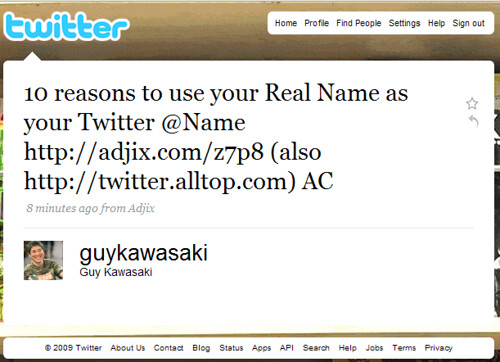What I learned from HP about co-opetition
What I learned from HP about co-opetition
We like competition. We thrive on it. We pit our children against eachother in near prehistoric rites of manhood called “Little League”. In all honesty without competition I doubt the human race would exist.
But what do we do when competiton doesn’t work anymore and we are driven to co-opetition?
HP (like most uber big companies) is complicated. Who doesn’t HP compete with? In the IT space there are very few companies that they don’t compete with on some level. While simultaneously there are very few of those competing companies that we don’t also partner with at some level. It’s very complicated.
As an example, my Samsung BlackJack 2. HP competes very heavily with Samsung on both PC’s, printers and phones (yes HP makes phones). After taking my first picture with my phone I was presented with three options: Send Multimedia Msg, Send to HP’s Snapfish and Cancel.
I was amazed that a company we competed so heavily with enabled their customers to send photo’s to the HP owned Snapfish. Snapfish had obviously worked their own deal with Samsung.
HP has always had a strong belief that each business unit was enabled to do whatever it took to grow that business, even if it meant working with a company that HP competed with. This is often referred to as co-opetition
Arguably one of the most profitable examples of co-opetitions is the HP LaserJet printer. The LaserJet printer is HP’s most profitable product to date and was co-developed with one of HP’s biggest competitors; Canon. Canon still manufactures the engines.
Social media is all about sharing right? What about your competition? Aren’t you supposed to crush them? We all know this, but let me tell you something, competition is good.
What would PC’s be like if Apple didn’t exist? They’d probably be ugly, big and hard to use.
What does this mean to social media professionals? I’ve had an ongoing friendly relationship with Bruce Eric at Dell (one of the few companies we compete most fiercely with and don’t partner with). While we’ve talked about family, life, travel, Web tools and social media we’ve never talked about Dell and/or HP.
While social media means we get to be human and share, you have to know what’s appropriate and what’s not. We were still competitors after all. At one point I was even invited to contribute to the Digital Nomads blog but declined because while I’m happy to support a cause I wasn’t willing to contribute to a site that was pushing competitive product.
Now that I work at Waggener Edstrom I find myself “competing” with friends I’ve worked with at Porter Novelli (PN is an HP agency). I also find myself “competing” with people I respect and have learned a great deal from. But the fact of the matter is I don’t see myself as competing against them even if ouor companies are competitors.
Mike Manuel just posted about how agencies (who all now do social media) are being asked to work with eachother by clients. This happened before the rise of social media but it’s almost becoming more common than not.
I for one welcome this. If you think you and your agency know more than any other individual or agency out there you are in for a rude awakening.
As with social media companies (especially agencies to begin with) need to embrace co-opetition. I garuntee you that your business will be far more profitable if you can manage this.
Even if you or your company culture isn’t ready for this (very few outside of tech are right now) you need to at least head the advice given by Mark Solon, managing partner at Highway 12 Ventures and respect your competition.
If you really want to know where this trend will lead I suggest you check out Open Business Models: How to Thrive in the New Innovation Landscape![]() by Henry Chesbrough. This is just the begining.
by Henry Chesbrough. This is just the begining.
As a prelude to a forthcoming blog post I also believe this is another factor in why large enterprise companies are on their way out.
Related articles by Zemanta
- Technology and Creative Destruction (newcommbiz.com)
- Chasing Your Customers vs Chasing Your Competitors (newcommbiz.com)
- Report: Verizon, Microsoft working on ‘Pink’ phone (news.cnet.com)
If you enjoyed this post, make sure you subscribe to my RSS feed!








